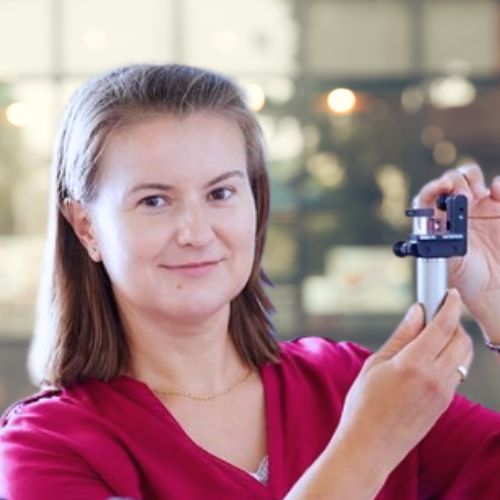
Anna Tchebotareva

My area of expertise is the interaction between light and matter, nanophotonics, and non-linear properties of material, but my interests are broad-based. This benefits my cooperation with experts from other disciplines and helps me build bridges.
“That feeling of “Eureka! We’ve got it!” is what it’s all about”.
Senior scientist in the optics department Anna Tchebotareva conducts top-notch research for programmes including QuTech. A joint research and development programme in the field of quantum computers, quantum communication and quantum technology, QuTech involves researchers from TU Delft, TNO and industry partners. While the practical application of quantum technology is still some way off, the focus is firmly on products for the future. Read the the story >
Delft - Stieltjesweg
Stieltjesweg 1
2628 CK Delft
The Netherlands
Postal address
P.O. Box 155
2600 AD Delft
The Netherlands